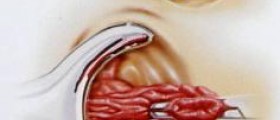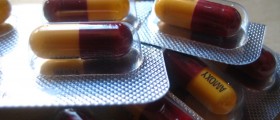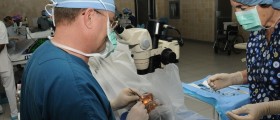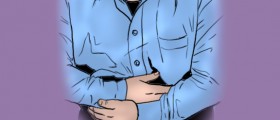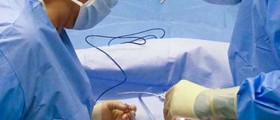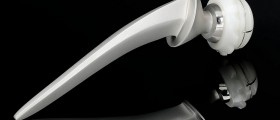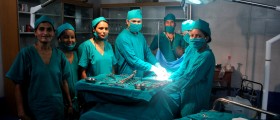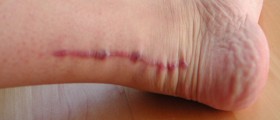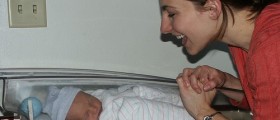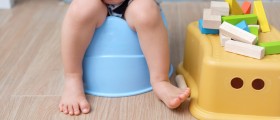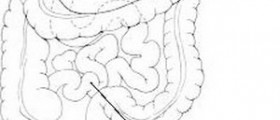This sounds horrible. Has anyone had a good or not so horrific experience?
Loading...
I had a hemorrhoidectomy in late June. I admit, the first week was probably the most painful thing I have ever gone through. But if anyone asked me if I would do it again, the answer is ABSOLULTELY YES. I had outpatient surgery to remove 2 internal, 3 external, and repair a fissure. It was pretty intense. The first 3 nights were absolutely miserable. But it got better each day. The trick is to stay on a liquid/soft foods diet for the first 4 days. Then the bowel movement does not hurt so badly. It's hard to sit for about a week and a half. I did go back to work on day 8. Had trouble sitting but, sat sideways and shifted a lot. When you felt the urge to have a bowel movement, the pressure was intense so you'd have to be near a bathroom cause you can't squeeze your muscles to hold it in. I also had bleeding for a while.
Then, at the one-month point, it started feeling pretty normal. But then, I was suffering from a large skin tag, an after effect of removing hemorrhoids. Extra skin. It grossed me out. I waited until October to have it removed. It wasn't giving me pain, it was just disgusting. I wanted to be free of anything hanging from my rear. So, that procedure was an office procedure, took about 5 minutes. Doctor gives you a local - that was the most painful part. Then after that, you're numb. He cuts it out, and then torches your open wound with heat to prevent bleeding. That's it. This was NOTHING compared to the hemorrhoidectomy. I felt discomfort, no pain, for about a week. That's it.
All in all, it wasn't that bad. Take meds, rest, don't sit on your butt, and lots and lots of sitz baths. The baths are the trick. It is absolutely wonderful to be free of any hemms!!!!
Then, at the one-month point, it started feeling pretty normal. But then, I was suffering from a large skin tag, an after effect of removing hemorrhoids. Extra skin. It grossed me out. I waited until October to have it removed. It wasn't giving me pain, it was just disgusting. I wanted to be free of anything hanging from my rear. So, that procedure was an office procedure, took about 5 minutes. Doctor gives you a local - that was the most painful part. Then after that, you're numb. He cuts it out, and then torches your open wound with heat to prevent bleeding. That's it. This was NOTHING compared to the hemorrhoidectomy. I felt discomfort, no pain, for about a week. That's it.
All in all, it wasn't that bad. Take meds, rest, don't sit on your butt, and lots and lots of sitz baths. The baths are the trick. It is absolutely wonderful to be free of any hemms!!!!
Loading...
I had a hemmheroidectomy about three months ago, along with a sphincterotmy to correct an anal fissure. They also created a skin flap to cover the fissure. I had a lot done! I took two different drugs to control pain. Right after surgery, I became very constipated (which is what caused much of my problem to begin with). So after lots of fiber therapy, stool softeners, and laxatives, I finally had a very painful BM. It bled. The next two were painful but not as bad. Expect bleeding for several weeks. I still have bleeding after three months. But had to have a follow up proceedure because of a skin tag. Much better now but still mild bleeding.
Loading...
Hi all, I have surgery scheduled in 2 days and needless to say that finding this site isn't overly comforting. In fact I'll probably have high blood pressure the day of surgery. I have 1 small internal hem and a larger one that is partially in and partially out. The Dr will band the internal and cut the larger one out. I've been reading posts and taking notes. Note that I've pulled these from multiple posts on the site so I would have all the information in one place and I thought it might help someone else out also. Here is what I've come up with for things to do. I also tried to organize things into a reasonable timeline of when things should be occurring. Hopefully this will be of use to someone else also. If anything is a bad idea, please let me know....
Things to Have Before Surgery
Fleet enemas
Panty liners; 4x4 gauze
Flushable aloe vera baby wipes; ie "Kandoo"
Squeeze ketchup bottle
Ointments - cocoa butter, diaper rash lotion, aloe plant, lidocaine, Desitin, A&D ointment, hydrocortizone, Prep H, Benedryl cream
Stool softener: milk of magnesia, metamucil, citricel, Sennakot, delcolax, collace, mineral oil, fish oil
Multivitamin, Magnesium pills
Pain pills: Tylenol, Advil, Motrin
Epsom salt
Fruits (prunes also), vegetables, greens, bran, juice (prune juice), canned fruit, Soups, jello, puddings, fig newtons, wheat bread, yogurt
Bucket to carry around for nausea
Book or mp3 player to pass time in tub. Nothing corded to an outlet.
***********
***********
PREPARATION FOR THE VISIT
Take a stool softener such as Metamucil or Citrucel for a few days prior and after the procedure. Don't overdo it - use just need enough to keep the stool soft. Remember to drink plenty of water - this should make the first BM less painful.
It's a good idea to be eating a high fiber (low meat) diet a few days prior to surgery - plenty of vegetables and fruit and high fiber cereals and breads.
Prior to coming in, take one to two enemas an hour or two before the planned surgery - as directed by your doctor. Hold the enema for 5 to 10 minutes and then expel it. Fleets enemas or tap water enemas are fine.
********
Day of Surgery
Surgery
Local anesthetic should last 6 to 12 hours after surgery. You will leave only after the anesthesia wears off and you have urinated.
Care Directly After Surgery
Take pain meds as prescribed and on time. Do not combine Percocet and Vicodin - you'll get ill. Percocet claimed to work best...start with it and switch off every 4 to 6 hrs. Use an alarm to keep on schedule through the night - Pain meds will take approximately 30 minutes to kick in - staying on schedule is important.
Some doctors may recommend that you take an antibiotic (such as metronidazole) to prevent infection and reduce pain.
Ice packs applied to the anal area may reduce swelling and pain.
Frequent soaks in warm or hot water (sitz baths) help relieve pain and muscle spasms. Recommended to add epsom salts to bath - roughly 1/3-1/2 cup of epsom salts either every or every other time. This may speed recovery.
Try to walk some - at least 3 trips to the end of the house. You won't feel like it, but it will make you feel better in the long run. Carry a small bucket in case of nausea.
First Bowel Movement
Recommended that you take stool softeners that contain fiber to help bm.
Have a tub of hot water ready before you have your BM.
Do not strain - you will be risking getting fissures or another hernia.
You may apply numbing medicines before and after bm to relieve pain.
Do not, no matter how much you want to - hold it in. This will just hurt you worse. Breathe through the bm - do not hold your breath - try the Lamaze technique of breathing.
If it is too painful, you can climb into the tub of hot water to relieve yourself & clean up afterward.
Otherwise, finish BM and optionally clean with aloe wipes and get into hot bath for relief.
In addition to stool softeners and citrucel, One doctor recommended to take Sennakot - or any vegetable based laxative - if there is no BM after 2 days.
Food
It is very important to have a high fiber diet so that your stool remains soft. Your diet should be high in fruits, vegetables, greens, bran, juice, etc. Canned fruit is handy for convenience. Soups, jello, oatmeal, and puddings are also recommended. Eat nothing fried, spicey, acetic (take heed with citric and tomato products) for many weeks. Be sure to chew well. Note that some complain that bran and cereals can cause pain due to being rough when expelling later - also some Dr's recommend holding off on the high fiber because of the bulk it adds but other want the bulk to prevent narrowing of the anus. They recommend so to stick with soft foods with softeners. One recommendation is 30 g fiber per day - fig newtons, wheat bread, bean soups (be aware that gas will cause pain) are ways to increase fiber. If you eat only liquids it will constipate you and might cause your rectum to narrow from not stretching from the bowel movements during your healing.
Recognize that fiber absorbs quite a bit of water. You need to increase your water intake - aim for at least 8 glasses of liquids per day.
Pain meds will cause constipation, so additional stool softener is important. Collace, citrucel (mixing with apple or grape juice helps it go down), delcolax, milk of magnesia, etc. with a couple of meals per day reported to help. Prune juice or organic dried prunes are good alternatives that are highly recommended. An additional 2 tsp of mineral oil or fish oil can help as well. Your goal is for soft stools not diahrrea - so don't take everything listed. Everyone's body is different so adjust as needed.
Again, in addition to stool softeners and citrucel, One doctor recommended to take Sennakot - or any vegetable based laxative - if there is no BM after 2 days.
A good multivitamin should be taken to help promote healing. Magnesium pills were recommended to help soften stools and for general healing.
Eating will result in a BM, so it's a good idea to take a pain killer while eating so that it kicks in at the same time as your BM.
Pain Management
Understand your pain:
The first type of pain is just after the surgery where muscle spasms pull on the surgical site. The percocet may or may not help for this - many claim to take pain pills early in morning before bm to help with this, but a Valium (or other muscle relaxant) and warm or hot baths may be more helpful. Switching out percocet with vicodine every 4 to 6 hrs was recommended; however, stopping the spasm as the source may be more effective than covering the pain with pain killers. Some reported good results with heating pads and a massager in the small of the back. Try ice and heat, one may work sometimes and the other at other times. This may only last about a week or so.
The second is the extreme pain as stomach acids in the BM pass the surgical site. Aloe dampened baby wipes and a squirt bottle bidet make those pass quickly. Witch Hazel on gauze is an alternative. Pain meds seem to hinder the bm so the meds may wear off before you are done. Try to walk until time to really go. Lamaze breathing helps to get you through. A hot bath may help for this as well.
The third is a similar, but less intense, acid irritant ache from seepage from the spincter. Use cocoa butter or diaper rash oinments (see list above) on affected area 2 or 3 times a day to help numb the area and help with rubbing as well. Cuttting off a chunk from an Aloe Vera plant , peeling it (very gooey) and placing between the cheeks (the low down ones) may provide more relief.
A forth type is due to constipation. Polyethyline glycol may be prescribed as a laxative, but more natural alternatives have been listed above.
The last one occurs as the surgical site begins to stretch back to its normal size and shape. Think of it as exercise: no pain, no gain.
First Few Days
Your body needs food to heal. Review the Food section above. Your body needs plenty of rest to heal - sleep as often as the body will allow.
Keep on schedule with meds.
Frequent hot sitz baths (especially salty baths - roughly 1/3-1/2 cup of epsom salts in the bath every time) will help the most for discomfort--just sit in a hot bath for 20-30 minutes 3-4 times per day (or more) and after BM. Some prefer to use a wand showerhead over the bath.
BM will be painful. Do not hold it in, remember not to strain and refer to the Pain Management above. Try to take pain pills when you first wake up and with meals so they'll kick in when you have your BM.
You should have a BM every 2 days. Contact Dr. and increase laxatives if this does not occur. One Dr suggested - If you don't go at all one day, take one Tbs of Metamucil and one Tbs of Milk of Magnesia. If you go 1-2 times, take one Tbs of Metamucil. If you go 3 or more times, don't take anything. For severe constipation, an enema may be needed.
You need to be moving around some. Your body will be very tired after surgery, but you must force yourself to walk. Take a bucket even if you don't feel nausea still. Walking will help regulate BMs. Around day 3, you should be able to take a short walk outside. The sooner people started walking seems to be the sooner they feel better. Don't roam too far from home.
Try not to sit too much right now. Standing and lying are optimal.
First Week
Try to stretch the time between pain pills by using using 600 mg advil. If you are having trouble urinating when taking Loritab, mix with Motrin and it should help. By the end of this week to 10 days, you should be almost off all prescription pain killers except for occasional use. Replace with Motrin or a mix of Motrin and Tylenol. You may go through 100 Motrin for the first 2 weeks. 2 weeks seems to be when most experience a noticeable decrease in pain & it tends to occur overnight. When nothing seems to help, try to remember you just need to make it to 2 weeks.
Continue with high fiber diet and softeners. You risk a setback if you stop softeners right now. If gas becomes an issue, Beeno may help.
Weeping of the wound (blood and mucus) is normal for several weeks. Wear depends, panty liners, gauze between your butt cheeks as needed. Recognize infection of the wound is possible so inform your Dr. of anything unusual.
If you aren't walking yet, you should be.
Try to do things that take your mind off your body. Have a plan to do something while you are in bed - a new book, movies, etc.
Follow-up exams are usually done 1 week and 3 weeks after surgery, but don't feel shy about asking to reschedule if you need to.
Next few weeks
After 2 weeks, you can expect a noticeable decrease in pain. BM will still be an issue. You will need to plan around them.
10 days to 3 weeks seems to be the earliest for going back to work - don't be surprised if it takes 4 to 6 weeks.
Check with Dr, but with itching try mixing hydrocortisone & prep H with a little lidocaine. It should provide immediate relief to get thru the day.
There will still be weeping and spotting for 4 to 5 weeks (2 months for some). Around 10 to 14 days, some experience an increase in bleeding due to a scab falling off. This is normal.
10 days is too soon to stop laxatives, but everyone is different. The suggestion is to keep Metamucil or similar in the diet for months following the surgery. At 2 weeks (or sooner if you can), you need to be decreasing laxatives if your stool is not firm at all (you still want soft stool though) to help prevent narrowing of anus. In the next few weeks, slowly work toward a more normal BM. DO NOT STRAIN. You are progressing too fast if you are straining at all.
Continue with HOT water baths to promote healing and 2 motrins at bed time to be preventative for pain. Try to take with Tylenol to see if it helps more. At week 3, some are taking 3 to 6 Motrin daily. At 3 weeks, some are no longer doing hot baths, but replacing with a wand showerhead. At 3 weeks, some are adding meat back into diet but do this slowly and on a day when you can spend at home in case it causes discomfort.
6 weeks
Most of swelling should go down and you should have a good idea how you healed up.
You may be still taking stool softeners, but no laxatives. This is the soonest to consider weaning off fiber drink if you choose to do so. Again, do it gradually - every 2 days for a week, then every 3 days.
Things to Have Before Surgery
Fleet enemas
Panty liners; 4x4 gauze
Flushable aloe vera baby wipes; ie "Kandoo"
Squeeze ketchup bottle
Ointments - cocoa butter, diaper rash lotion, aloe plant, lidocaine, Desitin, A&D ointment, hydrocortizone, Prep H, Benedryl cream
Stool softener: milk of magnesia, metamucil, citricel, Sennakot, delcolax, collace, mineral oil, fish oil
Multivitamin, Magnesium pills
Pain pills: Tylenol, Advil, Motrin
Epsom salt
Fruits (prunes also), vegetables, greens, bran, juice (prune juice), canned fruit, Soups, jello, puddings, fig newtons, wheat bread, yogurt
Bucket to carry around for nausea
Book or mp3 player to pass time in tub. Nothing corded to an outlet.
***********
***********
PREPARATION FOR THE VISIT
Take a stool softener such as Metamucil or Citrucel for a few days prior and after the procedure. Don't overdo it - use just need enough to keep the stool soft. Remember to drink plenty of water - this should make the first BM less painful.
It's a good idea to be eating a high fiber (low meat) diet a few days prior to surgery - plenty of vegetables and fruit and high fiber cereals and breads.
Prior to coming in, take one to two enemas an hour or two before the planned surgery - as directed by your doctor. Hold the enema for 5 to 10 minutes and then expel it. Fleets enemas or tap water enemas are fine.
********
Day of Surgery
Surgery
Local anesthetic should last 6 to 12 hours after surgery. You will leave only after the anesthesia wears off and you have urinated.
Care Directly After Surgery
Take pain meds as prescribed and on time. Do not combine Percocet and Vicodin - you'll get ill. Percocet claimed to work best...start with it and switch off every 4 to 6 hrs. Use an alarm to keep on schedule through the night - Pain meds will take approximately 30 minutes to kick in - staying on schedule is important.
Some doctors may recommend that you take an antibiotic (such as metronidazole) to prevent infection and reduce pain.
Ice packs applied to the anal area may reduce swelling and pain.
Frequent soaks in warm or hot water (sitz baths) help relieve pain and muscle spasms. Recommended to add epsom salts to bath - roughly 1/3-1/2 cup of epsom salts either every or every other time. This may speed recovery.
Try to walk some - at least 3 trips to the end of the house. You won't feel like it, but it will make you feel better in the long run. Carry a small bucket in case of nausea.
First Bowel Movement
Recommended that you take stool softeners that contain fiber to help bm.
Have a tub of hot water ready before you have your BM.
Do not strain - you will be risking getting fissures or another hernia.
You may apply numbing medicines before and after bm to relieve pain.
Do not, no matter how much you want to - hold it in. This will just hurt you worse. Breathe through the bm - do not hold your breath - try the Lamaze technique of breathing.
If it is too painful, you can climb into the tub of hot water to relieve yourself & clean up afterward.
Otherwise, finish BM and optionally clean with aloe wipes and get into hot bath for relief.
In addition to stool softeners and citrucel, One doctor recommended to take Sennakot - or any vegetable based laxative - if there is no BM after 2 days.
Food
It is very important to have a high fiber diet so that your stool remains soft. Your diet should be high in fruits, vegetables, greens, bran, juice, etc. Canned fruit is handy for convenience. Soups, jello, oatmeal, and puddings are also recommended. Eat nothing fried, spicey, acetic (take heed with citric and tomato products) for many weeks. Be sure to chew well. Note that some complain that bran and cereals can cause pain due to being rough when expelling later - also some Dr's recommend holding off on the high fiber because of the bulk it adds but other want the bulk to prevent narrowing of the anus. They recommend so to stick with soft foods with softeners. One recommendation is 30 g fiber per day - fig newtons, wheat bread, bean soups (be aware that gas will cause pain) are ways to increase fiber. If you eat only liquids it will constipate you and might cause your rectum to narrow from not stretching from the bowel movements during your healing.
Recognize that fiber absorbs quite a bit of water. You need to increase your water intake - aim for at least 8 glasses of liquids per day.
Pain meds will cause constipation, so additional stool softener is important. Collace, citrucel (mixing with apple or grape juice helps it go down), delcolax, milk of magnesia, etc. with a couple of meals per day reported to help. Prune juice or organic dried prunes are good alternatives that are highly recommended. An additional 2 tsp of mineral oil or fish oil can help as well. Your goal is for soft stools not diahrrea - so don't take everything listed. Everyone's body is different so adjust as needed.
Again, in addition to stool softeners and citrucel, One doctor recommended to take Sennakot - or any vegetable based laxative - if there is no BM after 2 days.
A good multivitamin should be taken to help promote healing. Magnesium pills were recommended to help soften stools and for general healing.
Eating will result in a BM, so it's a good idea to take a pain killer while eating so that it kicks in at the same time as your BM.
Pain Management
Understand your pain:
The first type of pain is just after the surgery where muscle spasms pull on the surgical site. The percocet may or may not help for this - many claim to take pain pills early in morning before bm to help with this, but a Valium (or other muscle relaxant) and warm or hot baths may be more helpful. Switching out percocet with vicodine every 4 to 6 hrs was recommended; however, stopping the spasm as the source may be more effective than covering the pain with pain killers. Some reported good results with heating pads and a massager in the small of the back. Try ice and heat, one may work sometimes and the other at other times. This may only last about a week or so.
The second is the extreme pain as stomach acids in the BM pass the surgical site. Aloe dampened baby wipes and a squirt bottle bidet make those pass quickly. Witch Hazel on gauze is an alternative. Pain meds seem to hinder the bm so the meds may wear off before you are done. Try to walk until time to really go. Lamaze breathing helps to get you through. A hot bath may help for this as well.
The third is a similar, but less intense, acid irritant ache from seepage from the spincter. Use cocoa butter or diaper rash oinments (see list above) on affected area 2 or 3 times a day to help numb the area and help with rubbing as well. Cuttting off a chunk from an Aloe Vera plant , peeling it (very gooey) and placing between the cheeks (the low down ones) may provide more relief.
A forth type is due to constipation. Polyethyline glycol may be prescribed as a laxative, but more natural alternatives have been listed above.
The last one occurs as the surgical site begins to stretch back to its normal size and shape. Think of it as exercise: no pain, no gain.
First Few Days
Your body needs food to heal. Review the Food section above. Your body needs plenty of rest to heal - sleep as often as the body will allow.
Keep on schedule with meds.
Frequent hot sitz baths (especially salty baths - roughly 1/3-1/2 cup of epsom salts in the bath every time) will help the most for discomfort--just sit in a hot bath for 20-30 minutes 3-4 times per day (or more) and after BM. Some prefer to use a wand showerhead over the bath.
BM will be painful. Do not hold it in, remember not to strain and refer to the Pain Management above. Try to take pain pills when you first wake up and with meals so they'll kick in when you have your BM.
You should have a BM every 2 days. Contact Dr. and increase laxatives if this does not occur. One Dr suggested - If you don't go at all one day, take one Tbs of Metamucil and one Tbs of Milk of Magnesia. If you go 1-2 times, take one Tbs of Metamucil. If you go 3 or more times, don't take anything. For severe constipation, an enema may be needed.
You need to be moving around some. Your body will be very tired after surgery, but you must force yourself to walk. Take a bucket even if you don't feel nausea still. Walking will help regulate BMs. Around day 3, you should be able to take a short walk outside. The sooner people started walking seems to be the sooner they feel better. Don't roam too far from home.
Try not to sit too much right now. Standing and lying are optimal.
First Week
Try to stretch the time between pain pills by using using 600 mg advil. If you are having trouble urinating when taking Loritab, mix with Motrin and it should help. By the end of this week to 10 days, you should be almost off all prescription pain killers except for occasional use. Replace with Motrin or a mix of Motrin and Tylenol. You may go through 100 Motrin for the first 2 weeks. 2 weeks seems to be when most experience a noticeable decrease in pain & it tends to occur overnight. When nothing seems to help, try to remember you just need to make it to 2 weeks.
Continue with high fiber diet and softeners. You risk a setback if you stop softeners right now. If gas becomes an issue, Beeno may help.
Weeping of the wound (blood and mucus) is normal for several weeks. Wear depends, panty liners, gauze between your butt cheeks as needed. Recognize infection of the wound is possible so inform your Dr. of anything unusual.
If you aren't walking yet, you should be.
Try to do things that take your mind off your body. Have a plan to do something while you are in bed - a new book, movies, etc.
Follow-up exams are usually done 1 week and 3 weeks after surgery, but don't feel shy about asking to reschedule if you need to.
Next few weeks
After 2 weeks, you can expect a noticeable decrease in pain. BM will still be an issue. You will need to plan around them.
10 days to 3 weeks seems to be the earliest for going back to work - don't be surprised if it takes 4 to 6 weeks.
Check with Dr, but with itching try mixing hydrocortisone & prep H with a little lidocaine. It should provide immediate relief to get thru the day.
There will still be weeping and spotting for 4 to 5 weeks (2 months for some). Around 10 to 14 days, some experience an increase in bleeding due to a scab falling off. This is normal.
10 days is too soon to stop laxatives, but everyone is different. The suggestion is to keep Metamucil or similar in the diet for months following the surgery. At 2 weeks (or sooner if you can), you need to be decreasing laxatives if your stool is not firm at all (you still want soft stool though) to help prevent narrowing of anus. In the next few weeks, slowly work toward a more normal BM. DO NOT STRAIN. You are progressing too fast if you are straining at all.
Continue with HOT water baths to promote healing and 2 motrins at bed time to be preventative for pain. Try to take with Tylenol to see if it helps more. At week 3, some are taking 3 to 6 Motrin daily. At 3 weeks, some are no longer doing hot baths, but replacing with a wand showerhead. At 3 weeks, some are adding meat back into diet but do this slowly and on a day when you can spend at home in case it causes discomfort.
6 weeks
Most of swelling should go down and you should have a good idea how you healed up.
You may be still taking stool softeners, but no laxatives. This is the soonest to consider weaning off fiber drink if you choose to do so. Again, do it gradually - every 2 days for a week, then every 3 days.
Loading...
Hello. Like many readers, despite the painful experiences on this forum, I have found it comforting to know that other people are going through the same as me. I had my hem op 4 days ago. Since then I have been up and down with the pain. Just this morning, I had my most painful BM yet - it was agony. I am taking paracetomal, voltoral, fibre gel and lactulose. I am also eating a high fibre diet. Unfortunately, this has meant that i have been having BM 4 - 5 times a day! I have found out from my Dr. this morning that it's too often and i need to cut down on the fibre gel and lactulose. I have read that many people are using sitz baths. I know nothing about these and my Dr. did not mention them to me. Please could someone tell me what they are and how i go about getting one?
Loading...
they are a little tub that you stick on top of the toilet and sit in. you can get one at your local drug store/pharmacy.
Loading...
Mickey30,
I am on day 6 following my surgery. A sitz bath refers to a bath that covers only your buttocks up to your hips. There is a device - similar to a basin - that sits on your toilet that has a sort of IV attached that allows warm water to pour slowly into the basin and it flows out of an outlet in the side so that it overflows into the toilet. However, most doctors do not recommend that you use this contraption as it doesn't offer support to your rectum and it puts a strain on your stitches and encourages pooling of blood in your rectum. You are risking fissures, tears, etc by using this - so I suggest you not use this.
I've dont throrough research on this before surgery and honestly I'm having an easier time than most because of it.
The sitz bath you need to be doing is filling the bath tub only partially full with warm or hot water. Fill it high enough to cover your hips. Hopefully your tub has those dots stuck to the bottom of it to help you from slipping when you climb in. From what I've read, hotter water gives more comfort but it also may cause more bleeding. I personally use warm water that is slightly on the hot side. I also add about 1/2 cup of epsom salt to the water because it is supposed to promote healing - be sure to dissolve the salt before climbing in. I grasp the side of the tub and slowly get on my knees, then I take one hand and put it on the floor of the tub and hold the edge of the tub tightly and lay down on the side of my hip. After I'm stable, I can roll over on my back into the water.
Can you give a better description of the pain you are having? I know it's hard to describe it while you are in the midst of it, but there are different types of pain. I'm going to number the ones I know of:
1 - The pain of the actual bowel movement. This can be a really intense pain - your rectum is knotted tight from the surgery and it is being forced open by the bowel movement and pulling against the stitches at the same time.
Do not fight the BM and don't hold your breath. Keep breathing through it....whimper, yell, cry...whatever you have to do...just keep breathing. Also don't push - this is hard not to do, but you are risking another surgery and a worst recovery if you push. Your body may go into convulsions and push for you - in which case you have no option but sit there til it's over, but it usually happens fairly fast - well under a minute.
If you are having this happen over and over again, you need to change your diet. Make sure you are getting plenty of liquids. Lower your dairy intake. You shouldn't be using any laxatives unless you haven't had a BM for 2 days. You should only be using stool softeners. You don't want to use them only once during the morning and wait til the next morning to take them again. You want your poop to be soft all the way through...that means you must take softeners throughout the day. Softeners do not have to be in form of a pill. Kellogg's makes a cereal called "All-Bran." It does not have much of a cereal taste, so you can add it to your food throughout the day. Do not take bran by itself - only with meals. You can add a couple of prunes to your diet daily and maybe a cup of prune juice. You will have to experiment - diahrrea is not the goal - you want soft stool that has some body to it and that comes out without you having to push at all. Also, fried, meats, citrus and acetic foods (tomato products) may cause pain.
2 - After your bowel movement, there is a second pain that occurs where your incisions feel like someone poured acid on them. I believe this is where poop is on the wounds and possibly some bleeding from the bowel movement. I bought some disposeable baby wipes called "Kandoos" to try to blot with, but honestly that hasnt really helped much. I've also tried to refill an enema bottle with warm water to try to spray back there but I can't say that gave great relief either. Some people say that getting in the shower and using a wand shower head helps alot, but I usually blot the best I can and climb in the tub. You need to always have your tub of water prepared ahead of time. I can't stress this enough. If a BM sneaks up on you, while you are pulling your drawers down, you need to be filling that tub! Although some people claim they have immediate relief when their butt touches the water, that hasn't been my case. It usually takes 3 or 4 minutes before the burning stops. The whole time, I'm swishing water between my cheeks - but it does pass fairly quickly, but it does hurt a good deal too.
3 - You probably have experienced this, but I doubt you are having it too much anymore. After pain number 2, my rectum would go into contractions or spasms. The first time it did it for 2 hours straight. The second time it was about 90 minutes. I increased my frequency of fiber and I've not had that issue much now. Maybe slightly for 5 or 10 minutes, but nothing nearly like it was. The valium (or whatever relaxer you were given) is supposed to help with this.
4 - This is what I suspect you are having issues with. After you have your BM, you feel like your rectum has no support holding it up in place. It's just sore and raw feeling and uncomfortable. If I have too many BM in a day, I feel that way or sometimes if I have poop that is inconsistent where some of it is soft and some of it is hard, it causes that. You kind of feel like you still may need to poop. I think alot of this is due to swelling. I would try to take some ibuprofen - just realize that it thins blood as well. But my Dr said that the benefit outweighs the risk. He said I could take between 200-800 mg per 6 hrs.
5 - This may be what you are experiencing also.... While you heal, your wounds weep yellow fluid and some blood. The fluid makes your incisions burn. The bath will help with this as well. In fact, I spend about 6 to 8 hours in a tub daily I think. I've read a few posts where the patients were having extremely quick recovery times and they had frequent soaks in epsom salt baths in common. If you are weeping anything that has more of a cottage cheese consistency or you are running a fever (101+), then you may have an infection so you may want to consult with your Dr.
Hope this helps....
I am on day 6 following my surgery. A sitz bath refers to a bath that covers only your buttocks up to your hips. There is a device - similar to a basin - that sits on your toilet that has a sort of IV attached that allows warm water to pour slowly into the basin and it flows out of an outlet in the side so that it overflows into the toilet. However, most doctors do not recommend that you use this contraption as it doesn't offer support to your rectum and it puts a strain on your stitches and encourages pooling of blood in your rectum. You are risking fissures, tears, etc by using this - so I suggest you not use this.
I've dont throrough research on this before surgery and honestly I'm having an easier time than most because of it.
The sitz bath you need to be doing is filling the bath tub only partially full with warm or hot water. Fill it high enough to cover your hips. Hopefully your tub has those dots stuck to the bottom of it to help you from slipping when you climb in. From what I've read, hotter water gives more comfort but it also may cause more bleeding. I personally use warm water that is slightly on the hot side. I also add about 1/2 cup of epsom salt to the water because it is supposed to promote healing - be sure to dissolve the salt before climbing in. I grasp the side of the tub and slowly get on my knees, then I take one hand and put it on the floor of the tub and hold the edge of the tub tightly and lay down on the side of my hip. After I'm stable, I can roll over on my back into the water.
Can you give a better description of the pain you are having? I know it's hard to describe it while you are in the midst of it, but there are different types of pain. I'm going to number the ones I know of:
1 - The pain of the actual bowel movement. This can be a really intense pain - your rectum is knotted tight from the surgery and it is being forced open by the bowel movement and pulling against the stitches at the same time.
Do not fight the BM and don't hold your breath. Keep breathing through it....whimper, yell, cry...whatever you have to do...just keep breathing. Also don't push - this is hard not to do, but you are risking another surgery and a worst recovery if you push. Your body may go into convulsions and push for you - in which case you have no option but sit there til it's over, but it usually happens fairly fast - well under a minute.
If you are having this happen over and over again, you need to change your diet. Make sure you are getting plenty of liquids. Lower your dairy intake. You shouldn't be using any laxatives unless you haven't had a BM for 2 days. You should only be using stool softeners. You don't want to use them only once during the morning and wait til the next morning to take them again. You want your poop to be soft all the way through...that means you must take softeners throughout the day. Softeners do not have to be in form of a pill. Kellogg's makes a cereal called "All-Bran." It does not have much of a cereal taste, so you can add it to your food throughout the day. Do not take bran by itself - only with meals. You can add a couple of prunes to your diet daily and maybe a cup of prune juice. You will have to experiment - diahrrea is not the goal - you want soft stool that has some body to it and that comes out without you having to push at all. Also, fried, meats, citrus and acetic foods (tomato products) may cause pain.
2 - After your bowel movement, there is a second pain that occurs where your incisions feel like someone poured acid on them. I believe this is where poop is on the wounds and possibly some bleeding from the bowel movement. I bought some disposeable baby wipes called "Kandoos" to try to blot with, but honestly that hasnt really helped much. I've also tried to refill an enema bottle with warm water to try to spray back there but I can't say that gave great relief either. Some people say that getting in the shower and using a wand shower head helps alot, but I usually blot the best I can and climb in the tub. You need to always have your tub of water prepared ahead of time. I can't stress this enough. If a BM sneaks up on you, while you are pulling your drawers down, you need to be filling that tub! Although some people claim they have immediate relief when their butt touches the water, that hasn't been my case. It usually takes 3 or 4 minutes before the burning stops. The whole time, I'm swishing water between my cheeks - but it does pass fairly quickly, but it does hurt a good deal too.
3 - You probably have experienced this, but I doubt you are having it too much anymore. After pain number 2, my rectum would go into contractions or spasms. The first time it did it for 2 hours straight. The second time it was about 90 minutes. I increased my frequency of fiber and I've not had that issue much now. Maybe slightly for 5 or 10 minutes, but nothing nearly like it was. The valium (or whatever relaxer you were given) is supposed to help with this.
4 - This is what I suspect you are having issues with. After you have your BM, you feel like your rectum has no support holding it up in place. It's just sore and raw feeling and uncomfortable. If I have too many BM in a day, I feel that way or sometimes if I have poop that is inconsistent where some of it is soft and some of it is hard, it causes that. You kind of feel like you still may need to poop. I think alot of this is due to swelling. I would try to take some ibuprofen - just realize that it thins blood as well. But my Dr said that the benefit outweighs the risk. He said I could take between 200-800 mg per 6 hrs.
5 - This may be what you are experiencing also.... While you heal, your wounds weep yellow fluid and some blood. The fluid makes your incisions burn. The bath will help with this as well. In fact, I spend about 6 to 8 hours in a tub daily I think. I've read a few posts where the patients were having extremely quick recovery times and they had frequent soaks in epsom salt baths in common. If you are weeping anything that has more of a cottage cheese consistency or you are running a fever (101+), then you may have an infection so you may want to consult with your Dr.
Hope this helps....
Loading...
TacomaGuy, thank you so much for your comprehensive response - the information you have given me is invaluable. I am going to send my partner out straight away to get some epsom salts!!! In answer to your question, the most intense pain I experience is the pain of the actual BM. Last time I thought I was going to pass out it hurt so much. I am trying really hard to keep the stools soft but at the moment I am too-ing and fro-ing between diahorrea and constipation - I will get there. I hope your recovery is as quick as it can be under the circumstances......
Loading...
Mickey,
Glad to help. A sitz bath will help recovery from the bowel movement, but it won't help make the bowel movement any easier unless you do your business in the tub. Anytime I think I'm constipated, I don't even try to poop on the toilet - I always opt for the tub because it is that much easier to relax your rectum in the warm water. However, don't let your stool go down the drain of the tub - it'll clog your drains. I bought a strainer on a handle that I use specifically to transfer it to the toilet that I'll throw away when this ordeal is over. I know it's gross, but if you are constipated, the stool doesn't really get all over you and you can shower directly afterward - and I can't tell you how much better an experience it'll be.
If your stools are consistently too hard, you can develop fissures and I think those will make every bowel movement hurt every time. If you develop a fissure, you'll have to see your doctor again. Everybody is a bit different, but here is what I've been doing as far as food goes...most of this is what I've pulled from other posts online. But to get consistency, you'll need to be consistent with what you eat.
Breakfast
I take my pain pills and relaxers (vallium) and anti-inflamatories (ibuprofen) - pills take up to 30 minutes to take effect so hopefully they'll be working by the time my bowel movement kicks in.
I get my tub prepared next so I'm ready to jump in immediately after my BM. I make the water slightly hotter than I want it so that it'll be the right temperature after I'm ready to get in it.
I start with a glass of citrucel (or metemucel should be fine)
I eat 2 prunes - chewing well - to try to combat constipation.
I take 1 fish oil capsule (I tried mineral oil originally, but it made me sick)
I make a hot bowl of very soupy oatmeal (some people eat as many as 3 bowls - I am 5'8 and weigh about 160#, so I'm assuming they are larger framed to eat that much). Take the time to chew this and all fiber very well - your incisions and rectum will be very tender and the better you chew the less it'll hurt later.
I follow it with 1 or 2 glasses of hot water or juice - no citrus
Sometimes I add fresh fruit (1/2 an apple or pear) - the skins contain fiber so always eat the skins and chew well. No citrus or acetic (tomato) since that will make incisions burn on the way back out.
Note: My entire breakfast routine is to get my body to have a bowel movement first thing in the morning - that's why the hot soupy oatmeal and hot water or juice. Never sit on the toilet until you are ready to go. Sitting on the toilet causes blood to pool at your rectum and will cause swelling and possibly bleeding. Taking a short walk helps get the digestive track moving as well. Also, pain pills cause constipation so depending on how many you are taking you may need to increase fiber or take stool softeners. Collace seems to be the number 1 recommended stool softener from all the boards I've read. Do not take all your fiber and/or softeners at one time during the day - spread them out. Otherwise your stool will be soft in places and hard in places - your goal is for a stool that has bulk but that is uniformly soft. You need to keep track of how many pain pills you take each day so you can have an idea when to increase your fiber, stool softeners, etc.
Lunch, Dinner, and snacks
I tend to mix these around a bit more, but the more I mix the more unpredictable my stool is. I stick with a very simple diet - I'm only on day 7 after surgery.
Since I'm a week after surgery, I don't take pills unless I think I may have another BM. I do take ibuprofen to keep swelling down; 400 mg to 800 mg depending on how I feel.
I have a cup of soup at one of my meals. I usually add some Kellogg's All-Bran to it to increase the fiber content.
I have 1/2 cup of canned fruit during the day.
I have the other 1/2 of the fresh fruit I had earlier during the day.
I usually have a cup of yogurt, pudding, or jello as dessert - I may add All-Bran to it.
I try to stick with grilled fish or a can of tuna in a salad to get my protein.
I try to limit my dairy intake - although I have eaten cottage cheese.
I have eaten some beef, but usually in soups - many people claim this causes constipation so I haven't experimented much.
I have raisin bran, fig newtons, dried fruit, cauliflower, carrots, and broccoli to snack on.
I have eaten nothing fried nor spicy. If I eat All-bran or raisin bran, I always eat it with something else and I try to spread it throughout the day.
My Dr said I could eat anything I wanted, but from what I've read it's best to start very simple and after you heal a bit you can start adding more complex foods into your diet.
This seems to be working pretty well for me - but it isn't a fulfilling diet by any means. And I am going to be a very sad boy tomorrow :(
Best of luck to you....
Glad to help. A sitz bath will help recovery from the bowel movement, but it won't help make the bowel movement any easier unless you do your business in the tub. Anytime I think I'm constipated, I don't even try to poop on the toilet - I always opt for the tub because it is that much easier to relax your rectum in the warm water. However, don't let your stool go down the drain of the tub - it'll clog your drains. I bought a strainer on a handle that I use specifically to transfer it to the toilet that I'll throw away when this ordeal is over. I know it's gross, but if you are constipated, the stool doesn't really get all over you and you can shower directly afterward - and I can't tell you how much better an experience it'll be.
If your stools are consistently too hard, you can develop fissures and I think those will make every bowel movement hurt every time. If you develop a fissure, you'll have to see your doctor again. Everybody is a bit different, but here is what I've been doing as far as food goes...most of this is what I've pulled from other posts online. But to get consistency, you'll need to be consistent with what you eat.
Breakfast
I take my pain pills and relaxers (vallium) and anti-inflamatories (ibuprofen) - pills take up to 30 minutes to take effect so hopefully they'll be working by the time my bowel movement kicks in.
I get my tub prepared next so I'm ready to jump in immediately after my BM. I make the water slightly hotter than I want it so that it'll be the right temperature after I'm ready to get in it.
I start with a glass of citrucel (or metemucel should be fine)
I eat 2 prunes - chewing well - to try to combat constipation.
I take 1 fish oil capsule (I tried mineral oil originally, but it made me sick)
I make a hot bowl of very soupy oatmeal (some people eat as many as 3 bowls - I am 5'8 and weigh about 160#, so I'm assuming they are larger framed to eat that much). Take the time to chew this and all fiber very well - your incisions and rectum will be very tender and the better you chew the less it'll hurt later.
I follow it with 1 or 2 glasses of hot water or juice - no citrus
Sometimes I add fresh fruit (1/2 an apple or pear) - the skins contain fiber so always eat the skins and chew well. No citrus or acetic (tomato) since that will make incisions burn on the way back out.
Note: My entire breakfast routine is to get my body to have a bowel movement first thing in the morning - that's why the hot soupy oatmeal and hot water or juice. Never sit on the toilet until you are ready to go. Sitting on the toilet causes blood to pool at your rectum and will cause swelling and possibly bleeding. Taking a short walk helps get the digestive track moving as well. Also, pain pills cause constipation so depending on how many you are taking you may need to increase fiber or take stool softeners. Collace seems to be the number 1 recommended stool softener from all the boards I've read. Do not take all your fiber and/or softeners at one time during the day - spread them out. Otherwise your stool will be soft in places and hard in places - your goal is for a stool that has bulk but that is uniformly soft. You need to keep track of how many pain pills you take each day so you can have an idea when to increase your fiber, stool softeners, etc.
Lunch, Dinner, and snacks
I tend to mix these around a bit more, but the more I mix the more unpredictable my stool is. I stick with a very simple diet - I'm only on day 7 after surgery.
Since I'm a week after surgery, I don't take pills unless I think I may have another BM. I do take ibuprofen to keep swelling down; 400 mg to 800 mg depending on how I feel.
I have a cup of soup at one of my meals. I usually add some Kellogg's All-Bran to it to increase the fiber content.
I have 1/2 cup of canned fruit during the day.
I have the other 1/2 of the fresh fruit I had earlier during the day.
I usually have a cup of yogurt, pudding, or jello as dessert - I may add All-Bran to it.
I try to stick with grilled fish or a can of tuna in a salad to get my protein.
I try to limit my dairy intake - although I have eaten cottage cheese.
I have eaten some beef, but usually in soups - many people claim this causes constipation so I haven't experimented much.
I have raisin bran, fig newtons, dried fruit, cauliflower, carrots, and broccoli to snack on.
I have eaten nothing fried nor spicy. If I eat All-bran or raisin bran, I always eat it with something else and I try to spread it throughout the day.
My Dr said I could eat anything I wanted, but from what I've read it's best to start very simple and after you heal a bit you can start adding more complex foods into your diet.
This seems to be working pretty well for me - but it isn't a fulfilling diet by any means. And I am going to be a very sad boy tomorrow :(
Best of luck to you....
Loading...
I am Day 10 post-op. I went in for a fistulotomy and came out with a bonus hemmorhoidectomy! I was NOT prepared for this! Dr removed both internal & external hems as well as placed a seton in a the fistulotomy (which is about 1/2" away from the anus, so the entire area is very owieeeee!). A seton is basically a cord through the fistula tract into the rectum and out the anus and tied into a loop. Yes, very attractive and downright fun (not). It will stay in place 2 months -- let's just hope and pray that it does what it is supposed to, which is heal the tract from the inside out.
FYI to those of you preparing for surgery ... it is somewhat common not to be able to urinate after surgery, but it usually regulates itself within 12-20. They called it a "sleepy bladder" from the anesthesia. This happened to me and I had to have a catheter drain, but then did fine once I got a few hours of sleep after returning home.
Turning Point day where I thought that I may just be human again occurred yesterday. I think I may live through this afterall. I was on Darvacet during the day and Lortab at night. The Darvacet really wired me and the Lortab did somewhat, but I choose sleepnessness over lack of pain control. Trying to step back on those now.
Tacomaguy-- great list! Wish I could've/would've known all that going into the surgery! Thank goodness I have a great caretaker (husband) and that our children are with with Gma and Gpa for Thankgiving.
Doctors vary -- on many things. Prior to surgery, I got a second opinion (actually 3 opinions as my brother is a surgeon too (no, no exam, just talked). Three doctors, three ideas. Hopefully the same outcome, but different ways on getting to that point.
My doctor prefers a "clean and dry" approach to healing. So when I asked for a numbing gel or asked about A&D, he said no to the gel and occasionally to the A&D. I put a tiny bit on a night to help with the seepage issue that tends to wake me up.
Regarding the going BM issue. I have found that the having a hamper right next to the toilet to lean into has been very helpful. Immediately afterwards I am directly into the bathtub for 20-30 minutes. Having tunes nearby really helps.
Foodwise, really nothing for the first 2-3 days other than the too-much-food the nurses gave me directly after surgery. I was really hungry so I ate toast and applesauce -- which in retrospect was too much, too soon. I got by on instant mashed potatoes for days 3-6 with an occasional glass of milk along with stool softeners and now I'm up to vegetable soup and a little bread. Just ate some raisins. Defintitely going to stay away from citrus and tomato-based foods for at least a couple of weeks.
Drinking tons of water & taking lots of baths have helped most.
Hoping for brighter days ahead, knowing there will be bad days mixed in.
FYI to those of you preparing for surgery ... it is somewhat common not to be able to urinate after surgery, but it usually regulates itself within 12-20. They called it a "sleepy bladder" from the anesthesia. This happened to me and I had to have a catheter drain, but then did fine once I got a few hours of sleep after returning home.
Turning Point day where I thought that I may just be human again occurred yesterday. I think I may live through this afterall. I was on Darvacet during the day and Lortab at night. The Darvacet really wired me and the Lortab did somewhat, but I choose sleepnessness over lack of pain control. Trying to step back on those now.
Tacomaguy-- great list! Wish I could've/would've known all that going into the surgery! Thank goodness I have a great caretaker (husband) and that our children are with with Gma and Gpa for Thankgiving.
Doctors vary -- on many things. Prior to surgery, I got a second opinion (actually 3 opinions as my brother is a surgeon too (no, no exam, just talked). Three doctors, three ideas. Hopefully the same outcome, but different ways on getting to that point.
My doctor prefers a "clean and dry" approach to healing. So when I asked for a numbing gel or asked about A&D, he said no to the gel and occasionally to the A&D. I put a tiny bit on a night to help with the seepage issue that tends to wake me up.
Regarding the going BM issue. I have found that the having a hamper right next to the toilet to lean into has been very helpful. Immediately afterwards I am directly into the bathtub for 20-30 minutes. Having tunes nearby really helps.
Foodwise, really nothing for the first 2-3 days other than the too-much-food the nurses gave me directly after surgery. I was really hungry so I ate toast and applesauce -- which in retrospect was too much, too soon. I got by on instant mashed potatoes for days 3-6 with an occasional glass of milk along with stool softeners and now I'm up to vegetable soup and a little bread. Just ate some raisins. Defintitely going to stay away from citrus and tomato-based foods for at least a couple of weeks.
Drinking tons of water & taking lots of baths have helped most.
Hoping for brighter days ahead, knowing there will be bad days mixed in.
Loading...
Guest,
Thanks for the compliment on the list. It's really not my list, it's what everyone on this site has contributed...I just organized it so I could find the information when I needed it and it worked so well for me I can't help but to share. I'm going to take a copy to my surgeon during my followup and try to get him to give it to his patients as well...his instructions were just not enough to get a guy through this.
I am on day 11 and last night I actually went out dancing at a bar. I do admit I had 2 beers, and I did probably dance more than I needed to but I don't feel bad today so I think I am going to be okay for my first day back in office tomorrow. I did eat a burger late last night - no cheese -but I did a couple of stool softeners with the meal. I'm shocked that hasn't passed through my system yet so I'm a little nervous about the consequences of that.
Guest, I'm not familiar with the surgery you had. Are your doctors not concerned with stenosis from lack of bulk to your stool? From everything I've read for a hemorrhoidectomy, you need to keep a soft but bulked stool the entire healing time or you are risking surgery to correct stenosis (where your rectum closes up and you can only pass stool the size of a pencil or something). Since your surgery is different from mine, I'm just asking out of curiosity. But for a hemorrhoidectomy, not eating after surgery has been posted multiple times as having bad consequences...partly because your body must have food to heal, but secondly for the stenosis being so risky. I was lucky that I could research before I had surgery, but I compared posts of people that had similar surgeries of mine (I think I've read every post on this site and 3 others - I was scared of this surgery) and what they did to recover - and the ones that ate simple, fresh foods with fiber suppliments and stool softeners seemed to recover quickest with the fewest complications.
Thanks for the compliment on the list. It's really not my list, it's what everyone on this site has contributed...I just organized it so I could find the information when I needed it and it worked so well for me I can't help but to share. I'm going to take a copy to my surgeon during my followup and try to get him to give it to his patients as well...his instructions were just not enough to get a guy through this.
I am on day 11 and last night I actually went out dancing at a bar. I do admit I had 2 beers, and I did probably dance more than I needed to but I don't feel bad today so I think I am going to be okay for my first day back in office tomorrow. I did eat a burger late last night - no cheese -but I did a couple of stool softeners with the meal. I'm shocked that hasn't passed through my system yet so I'm a little nervous about the consequences of that.
Guest, I'm not familiar with the surgery you had. Are your doctors not concerned with stenosis from lack of bulk to your stool? From everything I've read for a hemorrhoidectomy, you need to keep a soft but bulked stool the entire healing time or you are risking surgery to correct stenosis (where your rectum closes up and you can only pass stool the size of a pencil or something). Since your surgery is different from mine, I'm just asking out of curiosity. But for a hemorrhoidectomy, not eating after surgery has been posted multiple times as having bad consequences...partly because your body must have food to heal, but secondly for the stenosis being so risky. I was lucky that I could research before I had surgery, but I compared posts of people that had similar surgeries of mine (I think I've read every post on this site and 3 others - I was scared of this surgery) and what they did to recover - and the ones that ate simple, fresh foods with fiber suppliments and stool softeners seemed to recover quickest with the fewest complications.
Loading...
Hi everyone, I've had hemorroids since I can remember. They are also internal and external. I see that everyone complains about the pain, but it is also really bad when you constipate and it hurts like hell and your hemorroids are in the way and you are never TOTALLY CLEAN...soooooo....take some more pain killers and you will all be well in no time. As for me, I WANT THE SURGERY REALLY BADLY, EVEN IF IT HURTS FOR WEEKS.
Loading...
I am 4 weeks post surgery -- removed 3 large external hemorrhoids, the traditional way.
TacomaGuy: Thanks for the lists!! My first follow-up appointment is this week, and I will be giving the lists to my surgeon as well.
I was actually given no advice about what to do after my surgery. My biggest mistake was eating red meat and cheese and getting constipated; I am now very careful to avoid those, and eat lots of fiber and drink lots of water. Like everyone else, I was told (the lie) that you can return to work in two weeks. I was able to work half time the third week, and I am late to work today, because I'm still feeling the "pain" of this morning's bowel movement (6 hours ago). But it gives me time to post here!
I say "pain" in quotes because I am quadriplegic, paralyzed from the chest down, and I don't feel pain. I actually had no anesthesia or sedation for the surgery, and no pain meds afterwards. But I sweat uncomfortably when there is pain, and this site has helped me realize that is what is going on. I am still in "pain".
As a quad, I do bowel care every other morning with a suppository (bisacodyl) or enema (docusol) to cause peristalsis. Like others, I have immense "pain" during the bowel movement and afterwards. But a bath is not possible for me, so I just sweat until the "pain" subsides. No one in the hospital understood the sweating, because they don't understand quadriplegia.
My sweating has subsibed enough now, so I am off to work. More later...
I've loved all these posts (and the older, longer thread), and I've taken good advice from them.
TacomaGuy: Thanks for the lists!! My first follow-up appointment is this week, and I will be giving the lists to my surgeon as well.
I was actually given no advice about what to do after my surgery. My biggest mistake was eating red meat and cheese and getting constipated; I am now very careful to avoid those, and eat lots of fiber and drink lots of water. Like everyone else, I was told (the lie) that you can return to work in two weeks. I was able to work half time the third week, and I am late to work today, because I'm still feeling the "pain" of this morning's bowel movement (6 hours ago). But it gives me time to post here!
I say "pain" in quotes because I am quadriplegic, paralyzed from the chest down, and I don't feel pain. I actually had no anesthesia or sedation for the surgery, and no pain meds afterwards. But I sweat uncomfortably when there is pain, and this site has helped me realize that is what is going on. I am still in "pain".
As a quad, I do bowel care every other morning with a suppository (bisacodyl) or enema (docusol) to cause peristalsis. Like others, I have immense "pain" during the bowel movement and afterwards. But a bath is not possible for me, so I just sweat until the "pain" subsides. No one in the hospital understood the sweating, because they don't understand quadriplegia.
My sweating has subsibed enough now, so I am off to work. More later...
I've loved all these posts (and the older, longer thread), and I've taken good advice from them.
Loading...
I saw my surgeon yesterday and gave her a copy of 3 of TacomaGuy's posts. I fixed some spelling errors and typos, and titled it "Things I've Learned About Hemorrhoid Surgery Recovery". It was exactly 6 pages long. She asked me to email it to her, so she can more easily edit it and provide to future patients. I will be SO happy if that happens, so patients can be more prepared! The info is priceless to me, even though it doesn't all apply to me, as a quadriplegic.
I'm sure I will use the article again for my next hemorrhoid surgery, since the hemorrhoids will probably return in a few years, because I sit all the time and spend a long time on the toilet and use suppositories, etc. But I will do everything I can to prevent them.
Thanks again TacomaGuy! I asked SteadyHealth about their copyright, but they never responded. So I just included their copyright notice on the document.
I'm sure I will use the article again for my next hemorrhoid surgery, since the hemorrhoids will probably return in a few years, because I sit all the time and spend a long time on the toilet and use suppositories, etc. But I will do everything I can to prevent them.
Thanks again TacomaGuy! I asked SteadyHealth about their copyright, but they never responded. So I just included their copyright notice on the document.
Loading...
I had the surgery done friday and it is tuesday of the following week. I am still in severe pain. I am still taking percocet, and anti-inflammatory, a stool softener, plus Milk of Magnesium. I sure hope it feels better soon. I think i came back to work to soon but i didnt have anymore sick time available.
Loading...



